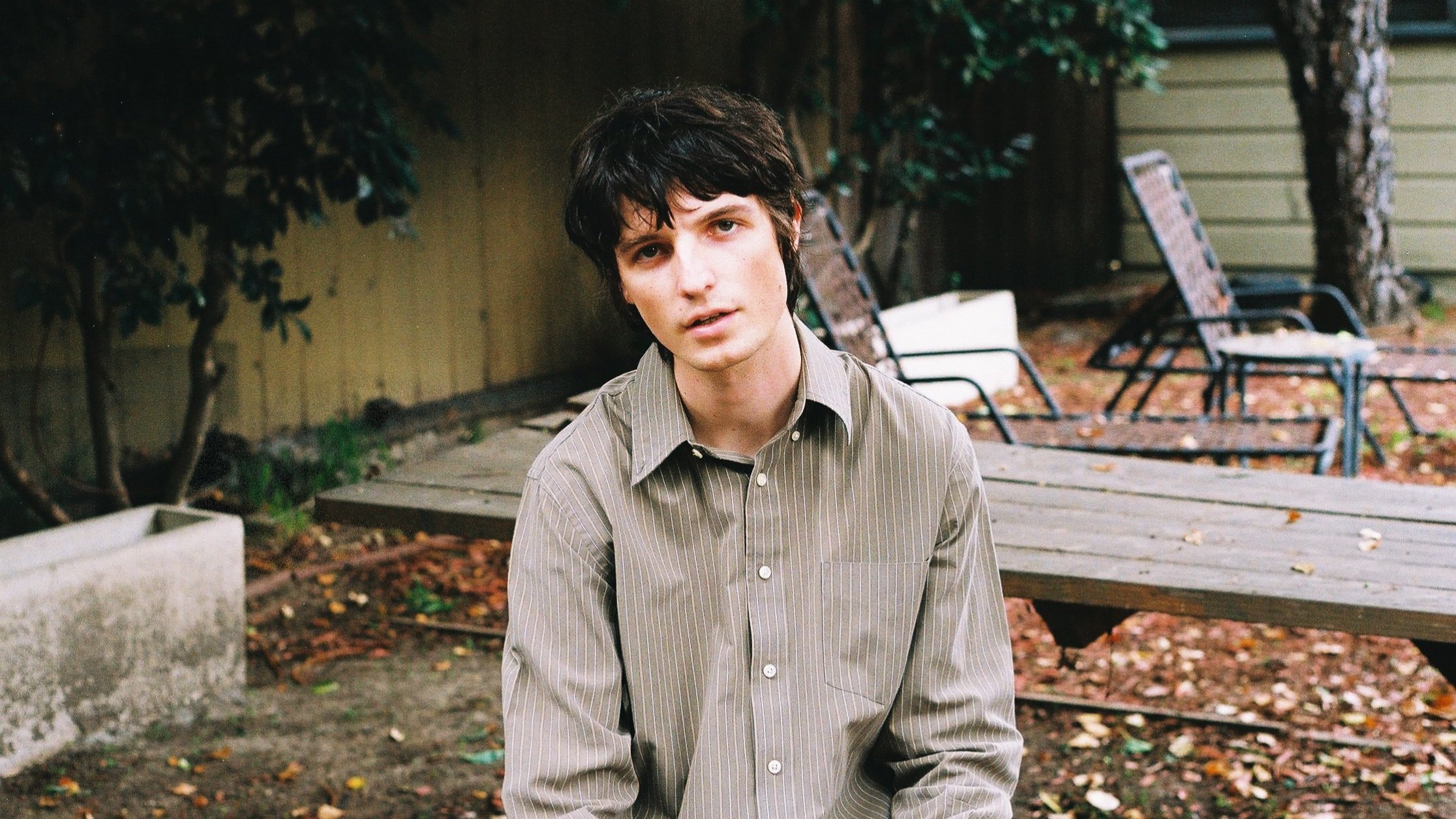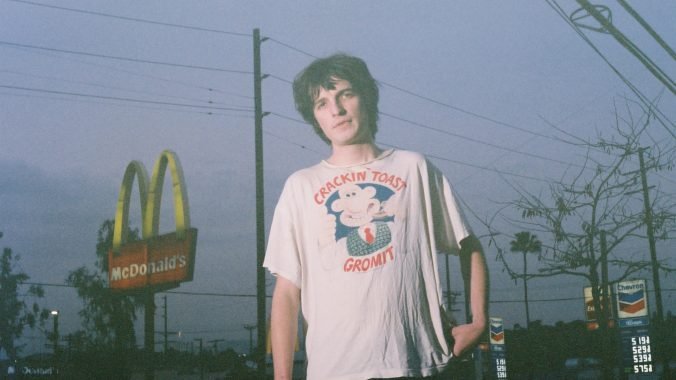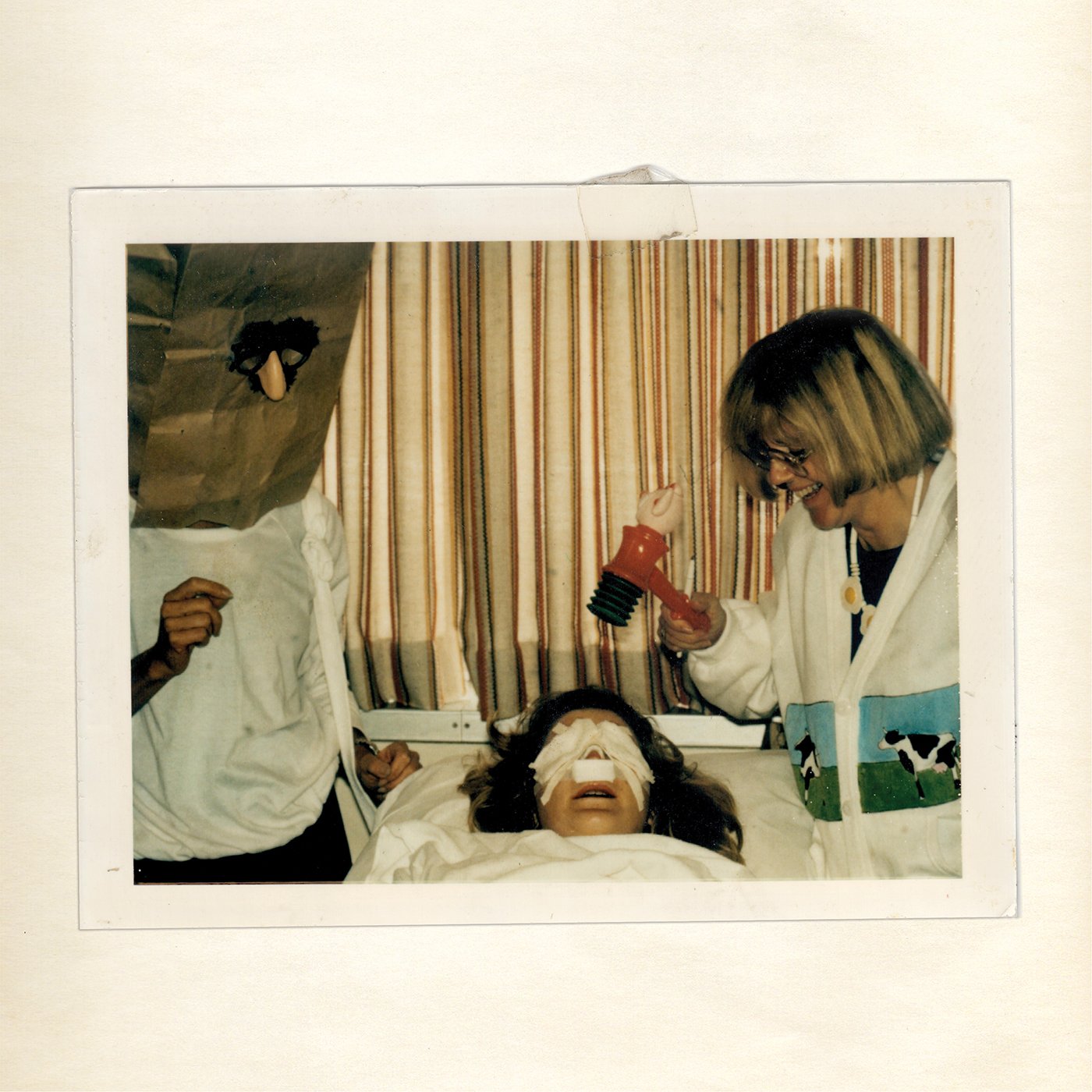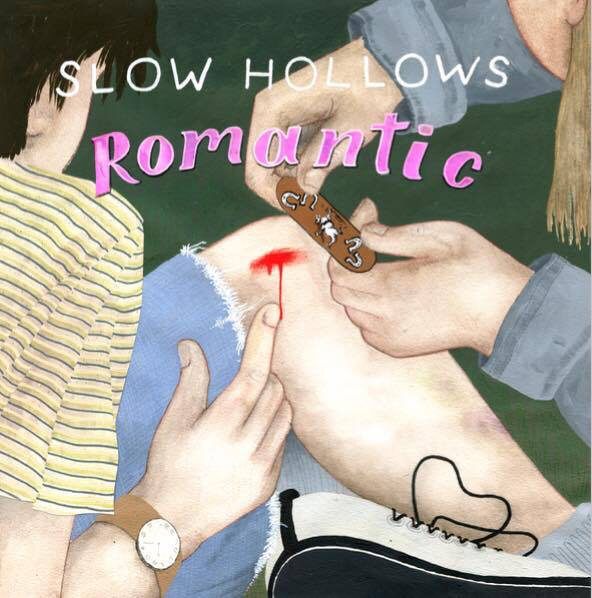“My grandma calls stubborn people bullheaded and it always stuck with me: I really relate to that term,” says Slow Hollows’ Austin Feinstein. After all, the 26-year-old Los Angeles songwriter has spent the past decade following his arrow, doggedly reinventing and honing his music across a diverse collection of LP’s. 2015’s Atelophobia and 2016’s Romantic both explored the fringes of indie rock, and put Feinstein on Frank Ocean’s radar, who tapped him to sing the chorus of Blonde’s “Self Control.” 2019’s Actors saw the Slow Hollows palette expanding further, incorporating elements of R&B and dance music, and production contributions from Tyler, the Creator (whose records Feinstein has appeared on since 2016). Despite the breakthrough moment, Feinstein and co decided the project had run its course, and announced that Slow Hollows was no more.
Five years later, and it couldn’t be more fitting that the news of Slow Hollows return would come with his aptly titled fourth album, Bullhead. Out March 2024 via Danger Collective, the new LP showcases Feinstein occupying his most confident era yet, and his first using the Slow Hollows name as a solo moniker.
“The last album felt like an effort to shed any identity Slow Hollows may have formed with our previous music,” explains Feinstein, “When it comes to Bullhead, making a sonic shift towards the sounds of early Slow Hollows records felt like something I needed to do for myself.” Across nine timeless and intentional songs Bullhead is a testament to Feinstein’s own stubborn perfectionism. “Making a cohesive album was the most important thing to me,” says Feinstein. “Having some time away from the band made me realize what Slow Hollows stood for. It's hard to realize what you're getting at when you're doing it. Making a sonic shift towards the sounds of early Slow Hollows records felt like something I needed to do for myself.”
Bullhead finds Feinstein at the height of his songwriting powers, stripping things back to an elemental place, only to build them back to smoldering heights. There are shades of Neil Young and Elliott Smith at the core of these songs but they’re all lushly rendered, unafraid to boast rich strings, moody synths, and bighearted guitar riffs.
Feinstein credits this with enlisting his longtime friend and collaborator Nick Noneman to record and produce the album. “We've made a couple of different versions of this album in the last two years,” says Feinstein. “I feel like I put him through the wringer trying to get it right but he has such a fire inside of him and knows Slow Hollows better than I do.” When Slow Hollows amicably disbanded in 2020, Feinstein kept writing, initially planning to release the new material under his own name. But the more he fleshed out his new material, the more he realized it made sense to continue as Slow Hollows himself. “At the end of the day, I just wanted to make an album that reflected my musical roots. I knew that collaborating with close friends was the only way to accomplish this,” say Feinstein.
One of the first songs that clicked is the shimmering opener “Homebody.” A rich and cinematic song with gorgeous strings, he sings, “I’m down, real down, help me out somehow / Living in a bad dream.” Written during a period of stasis in Feinstein’s life where he felt burnt out, the melancholic track reaches for catharsis despite its frank lack of optimism. “Tired” is another early tune written around the same time but here, Feinstein finds the silver lining, singing “I wish I knew you every step along the way / I’m tired of everybody but you.” These songs were a watershed moment during those recording sessions, establishing the sound of Bullhead and the tender balance between stark songwriting and soaring arrangements.
“I just was hard on myself in making sure that the songs were written as well as they can be before going in to record them,” he says, “I tried to let some of that stubbornness go when we got into the studio.” “A World Is Waiting,” features an off kilter, shuffling drum beat courtesy of Slow Hollows’ original drummer Nick Santana that Feinstein credits with tying the song together. “They just came up with a genius, weird drum beat,” says Feinstein. “So much of this album was about just having people that are really enthusiastic and can be honest with you.”
By allowing himself to collaborate and get out of his own head, Feinstein could freely experiment and try new things while recording. “Idle Hands” bursts with intensity, layering distorted guitars and piano over a driving beat, capturing the urgency of the band’s storied live sets. While Feinstein’s former bandmates have all moved on to their own musical projects and careers, the spirit of the band lives on through the making of this album. “Everybody who was in Slow Hollows has been involved in this record-making process even if they weren't directly making music with me,” says Feinstein.
Many of the songs on Bullhead are about people stuck in their own ways striving to break free of their routines and habits. Take the gauzy “Dreams Go,” a mid tempo tune that finds Feinstein singing, “Came here alone, lost in your ways / I’m not strong, you cut your gold, soften my ways.” But on the title track, Feinstein doesn’t mince words: “It’s alright, break it down and start again / Bullhead, you can’t keep waiting for the end.” There’s power in sticking to your guns and being strong-willed, but it’s just as important to take a step back, let people in, and breathe. Feinstein knows this, and Bullhead serves as a reminder to follow your gut, and get out of your own way. Despite the stubborn characters that populate these songs, there’s a light that shines through even the darkest moments. Take the luminous orchestral moments of “The Villain,” or the mantra Feinstein repeats on “Soap,” - “There’s no slowing down.” It’s a reflection of an artist rediscovering his voice, and embracing his instincts.
“It’s taken years to resist the urge to push songs into what I want, as opposed to following the natural path forward,” he shares. “Refining and not forcing was something I leaned into on this record and why it was important to have collaborators, people that could take an objective look at what serves the song best and scrap everything else. I am confident and proud in my understanding of every moment on this album.”















